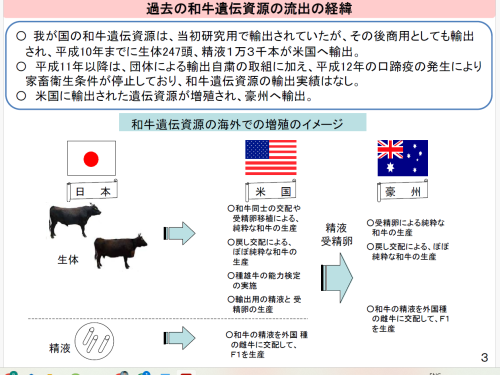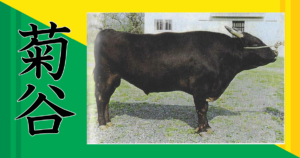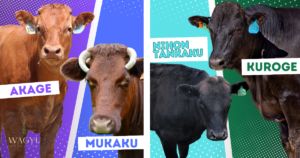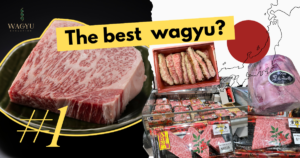How Wagyu Became A National Treasure
The introduction of Wagyu to America occurred between 1974 and 1997. According to the MAFF, there was a loophole that stated that live cattle, semen, and embryos were subject to export quarantine and could not be legally exported from Japan. Shogo Takeda, who is said to be the progenitor of Wagyu abroad, created a quarantine facility to bypass the provisions for export and was directly involved in over 80% of the genetic imports during an approximately 10-year period.
In 1992, Shogo Takeda, a livestock breeder from Hokkaido, shared Wagyu genetics to the rest of the world. He started importing embryos and semen. Additionally, between 1994 and 1996, he exported 35 black females, many as calves and five black bulls (Itomichi 1/2, Kikuhana, Itohana 2, Kinto and Terutani) to the United States allowing for the breeding of Fullblood Wagyu outside Japan.
The Initial Wave of Exportation

Initially, a total of 167 Black Wagyu cattle were exported, laying the foundation for Wagyu populations in the USA, Canada, and Australia. Subsequent migrations, starting in the late 1990s extended Wagyu herds globally, reaching Europe, South America, South Africa, and Asia.
In the early stages, four bulls were sent from Japan to the USA in 1976. Mazda, originating from Tottori Prefecture, is a full-blood black bull, as is Mt. Fuji, which hails from Hyogo Prefecture. Judo and Rueshaw are both full-blood red bulls. They were originally only meant for research at Colorado State University until Don lively crossed them with other breeds due to the absence of Wagyu females in the U.S. By 1991, the genetic base widened with the introduction of semen from a fifth bull, Itotani, in Canada, resulting in higher Wagyu percentages in American herds.
Further expansions occurred through imports by various entities. The Mannett Group imported Black Wagyu females and bulls in 1993, with the first Fullbloods born outside Japan in Canada in 1994. Subsequent imports in 1994 included Red Wagyu, contributing to the establishment of Wagyu herds in the USA and Canada. Japanese Venture Partners and Mr. Shogo Takeda also made significant contributions to the international spread of Wagyu genetics.
In 1997, Chris Walker of Westholme imported a substantial number of Black Wagyu females and males to the USA, diversifying the gene pool with Shimane, Kedaka, and Tajima genetics. This diversification aimed to enhance milk production, size, and marbling in the resulting offspring.
Takeda Farms later imported six Black Wagyu bulls, dispersing them to Australia and Canada after the quarantine period. Notably, a Mishima bull, Kamui, was included in this consignment, offering a unique genetic profile characterized by high marbling and smaller size.
Initially, in an interview with the LA Times Don Lively planned to export domestically raised and produced WAGYU to the Japanese market. However, this plan was abandoned due to low market valuation and insufficient competitiveness against Japanese Wagyu. Instead, the focus shifted towards adding high value within the domestic market, which continues today.
Wagyu beef gene overseas leakage prevention bill (和牛遺伝子海外流出防止法案)
Takeda expressed his desire to share delicious Wagyu with people worldwide, but he ignored the request of the National Wagyu Registration Association, a group strongly urging producers not to export Wagyu genetics overseas. Consequently, in 1997, he was expelled from the association. However, there were not any laws regulating exports during this time. Today, while Takeda is considered a pioneer in spreading the taste of Wagyu globally, his actions could be seen as contrary to the national interest of Wagyu viewed as intellectual property, leading to various evaluations.
Shogo Takeda and private companies (Westholme, Mannet and JVP) engaged in substantial export activities, leading to the sale of over 200 Japanese cattle and 15,000 straws of semen. However, this drew criticism, resulting in the expulsion of Shogo takeda from the National Wagyu Registration Association. In response, the designation of Wagyu as a national treasure in 1997 prompted the implementation of export restrictions on genetics.
The rationale behind these export restrictions primarily revolve around the protection of brand and intellectual property rights. Wagyu genetic resources are regarded as unique assets cultivated through years of effort, representing Japan’s heritage and expertise. There’s a significant concern that unauthorized exportation could tarnish the brand’s value and image, ultimately leading to financial losses and undermining the rights of Japanese producers.
Recognizing that foreign wagyu threatened the Japanese Wagyu market, the MAFF established the Discussion Group on Protection of Germplasm Livestock in 2006. The Group released a report that proposed strict management of wagyu semen, etc. Currently, bull semen trades must be recorded on semen certificates required for trading the bull in the future. Some Japanese prefectures prohibit the transfer of semen outside their jurisdictions.
Amendments to the Livestock Improvement and Propagation Act
To address these concerns, legislative measures have been enacted with recent cases of smuggling genetic material. Two men, Yusuke Maeda, who runs a grilled meat restaurant, and Toshiki Ogura, an unemployed man, were arrested by the Osaka prefectural police on suspicion of smuggling semen and embryos of Japanese Wagyu beef cattle into China.
In 2020, amendments to the Livestock Improvement and Propagation Act were introduced, alongside the enactment of the Law Concerning Prevention of Unfair Competition Related to Livestock Genetic Resources. These measures aim to facilitate the proper distribution of Wagyu genetic resources and safeguard their value as intellectual property. Furthermore, provisions have been made for legal action against those illegally acquiring or misusing Wagyu genetic resources, including severe penalties for egregious violations.
The newly enacted Livestock Genetic Resources Unfair Competition Prevention Act will impose penalties of up to 10 years in prison or up to 10 million yen in fines for those who illegally take genetic resources overseas. The government will also recognize the right to request an injunction against unauthorized use, and will ensure the protection of Wagyu beef, which is popular both domestically and internationally.
The proposed amendment to the Livestock Improvement and Breeding Act would require livestock industry-related parties to record the history of transfers to tighten the distribution control of genetic resources.
The enforcement of these legislative measures involves stringent actions. Producers are now empowered to seek injunctions against export violations, encompassing not only cattle but also their offspring. Additionally, individuals and corporations engaging in malicious practices to acquire Wagyu genetic resources face substantial penalties, including imprisonment and hefty fines. Moreover, stricter distribution rules have been implemented, mandating related parties to maintain detailed records of transfers.
Overall, these legislative efforts underscore the importance of preserving and protecting Wagyu genetic resources as vital components of Japan’s agricultural heritage and economic interests.
References
https://www.latimes.com/archives/la-xpm-1990-10-15-fi-2016-story.html
https://www.asahi.com/articles/DA3S14430598.html?iref=pc_ss_date
http://www.maff.go.jp/aqs/hou/require/attach/pdf/semen-10.pdf
http://www.pps.go.jp/english/jobs/export.html
https://www.maff.go.jp/j/study/katiku_iden/pdf/cyukan_matome.pdf
https://pref.ibaraki.jp/nourinsuisan/chikusan/seisan/cyuuikanki/cyuuikanki.html
https://www.nikkei.com/article/DGXMZO56305610T00C20A3EAF000/
https://www.nikkei.com/article/DGXMZO58176990X10C20A4EA4000/
https://www.luciesfarm.com/artman/publish/article_39.php
https://www.maff.go.jp/j/study/syoku_niku/pdf/s_report_2.pdf



